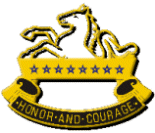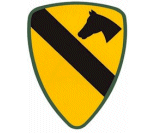DIGIJOURNAL 004--13 NOV 2006 part 1
DATELINE: 13NOV06 FOB PALIWODA
Hello to everyone from FOB Paliwoda. I am sorry that I have not written in awhile. Much has happened the past week so this entry will be in two parts. Again, I thank you for your support, your prayers, and your packages. I will be posting the packages I receive on this website under the title “Wall of Blessings.”
It was good to see our folks at O’Ryan. They are doing a great job. For some of the attachments, it was the first time they had seen a chaplain in months. It is important that I visit for counter-intuitive reasons. The folks that like to see a chaplain do not necessarily go to my services or seek me out. What I represent to them is that their chain of command has not forgotten about them. I also hope to convey that, by extension, God has not forgotten about them either.
While I was at O’Ryan, I had an opportunity to go out on a patrol and to attend with the commander the local city council meeting. While on patrol I saw miles upon miles of vineyards. It is quite amazing how much agriculture Iraq can support. During the patrol we stopped at a cluster of homes to speak with the people. The usual gaggle of children came to talk to us. We passed out some food and candy, and this made them pretty happy. Well, on our new Army Combat Uniforms (ACUs), we have some pockets on the outside of our sleeves for carrying pens and pencils. One of the kids spied the pens and immediately began asking if they could have one. The soldier gave his pen out and pretty soon all the children had asked for pens or pencils. We handed all of ours out, and they were eager for us to write their names in English. Many of us wondered why the pens took precedence in importance over candy, food, and other stuff. I was reminded of what I saw in Ghana, Africa many years ago. In impoverished countries, education is a privilege and not a right. Children cannot attend school unless they bring their own supplies. Our area is very poor, so few kids can attend school. Our soldiers could hardly believe it, and I reminded them (hopefully in a non-preachy way) that this is the way that most of the world lives.
The next day we went to the city council meeting in Ad Dujayl. A third of the city was razed in 1982 because someone tried to assassinate Saddam there. He also killed over 150 people and 400 more “disappeared.” In fact, the crime for which Saddam was sentenced to death was the atrocity he committed in Dujayl. The city council received us with open arms, and the meeting reminded me of a church committee. Because it was the first time that the C Company Commander had attended, they prepared a lunch for us afterward. I will now describe the cultural ways a meal is served to guests.
First, Iraqis, and Arabs in general, are very hospitable. They are some of the most generous people in the world. They will go so far as to place themselves under some economic strain in order to, in their eyes, properly entertain someone. Ever since the Bedouin roamed the deserts, a man’s wealth was measured in his flocks, his wives, his children, and the way he entertained his guests. It is not by accident that one thing lacking on the list is material items. It is pretty normal for even the simplest meeting to be followed with a meal.
The Iraqis served the meal on big communal platters. You do not use your left hand or utensils (which, as a lefty, makes eating an adventure). On this day we had lamb, some fresh vegetables, bread, grapes, and the ever present orange Fanta. We essentially tore the bread open, placed the lamb and some veggies in the bread, and dove in. I love Middle Eastern food, and I was not disappointed. The food was great, and the grapes were huge.
One washes his hands after the meal. After everyone has refreshed themselves, it is then time for chai tea and to talk business. The leaders usually sit according to a fairly rigid social structure that I have not figured out. You will have government leaders, tribal leaders, police leaders, and military leaders all shifting around to be seated correctly. Whenever someone new comes in we stand up, greet them with “Salaam Aleikum (may peace be on you),” touch our right hands to our hearts, sit down, and then raise our right hand and say, “Allah Bel Kheer (God is good).” Remember, these are official meetings, so there is obviously no hiding of one’s faith even in governmental arenas. Tea is then served and we get down to business.
Chai tea deserves its own paragraph. I absolutely love it, and it was one of the few things I was looking forward to during my second trip to Iraq. I am still not sure how they make it, but they boil the tea for awhile while mixing in sugar (like true Southerners do with their ice tea). The tea then gets hyper saturated with sugar. After this, they pour the tea in large shot glasses, add more sugar, and then serve. The way they pour it is important. If they like the guest, it is typical for them to fill the glass entirely so a little spills over the edge. This is to signify the abundance of blessing upon the host and the guest. If they are neutral, no tea will be spilt. If you do not get served tea, I guess you are in trouble.
One of the reasons why the commander brought me to the meeting is that the normal, non-insurgent Iraqis have a tremendous amount of respect for a person of the Christian faith. As Americans, we are so accustomed to talk in religiously sterile language that it sometimes gives the Iraqis the idea that we do not believe in God. It is also important to say “Inshallah (God willing),” when you speak, so as to not give the impression that we do things by ourselves apart from God. There are times when “Inshallah” is used as a face-saving, cloaked “no,” but mostly it is genuine.
At the meeting we found out that over 400 families had sought refuge in the town. They had come because they knew it was safe. The city was trying to take care of them, but they still needed quite a bit of clothes, blankets, and stuff for winter. Many Iraqis have been displaced by the violence here, and they have left everything in order to move their families to safety.
After being well-fed and well-hosted, we returned back to O’Ryan. I felt pretty good about the day and prepared myself for our trip back to Paliwoda. I did not get any sleep that night, shivered with chills, and had a bad case of “Saddam’s (rather than Montezuma's) Revenge." Paul said I needed a blanket and my mommy. It turns out that I had food poisoning, and I was very sick (with a fever, headache, and all the fun that comes with intestinal ailments) for the next four days. I know exactly how I got the food poisoning, for I violated a cardinal rule of international travel. It is usually fine to eat the cooked stuff, but do not eat the washed stuff. After several days of saline IVs and a constellation of meds, I finally made it back to Paliwoda.
Tomorrow I will send Heather part II of this letter. Until then, please continue to keep us in your prayers.
Take care and God bless,
Warhorse Archangel







No comments:
Post a Comment